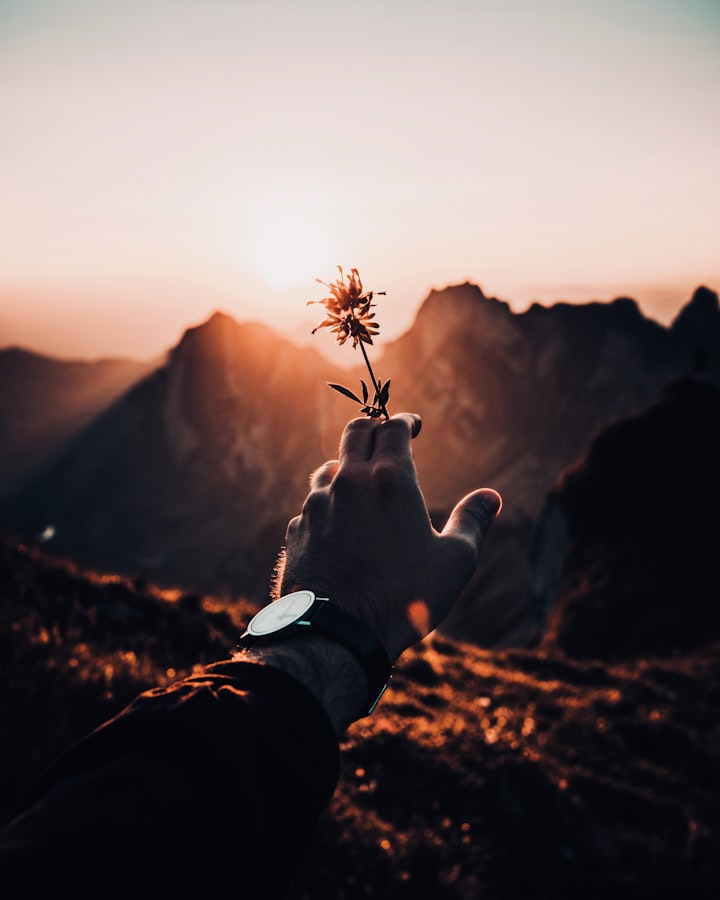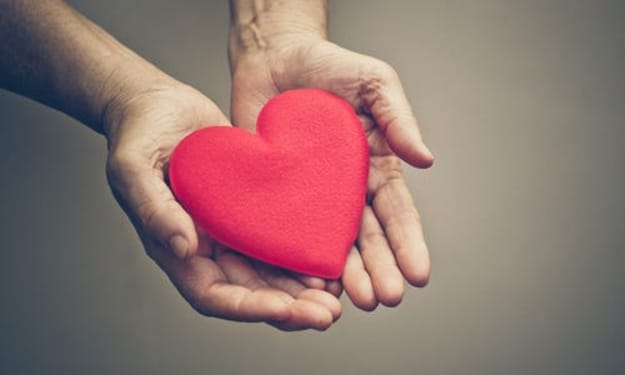Power of Not Reacting
How to Control Your Emotions

Once upon a time, a person went to Gautam Buddha seeking advice on how to control his emotions. The person was struggling with anger and frustration and was looking for a way to manage his emotions better. Buddha smiled and asked him to sit down. He said, "I will tell you a story."
Once upon a time, there was a king who ruled a prosperous country. One day, he decided to visit the neighboring Kingdom. He had heard that the king of that kingdom was famous for his wisdom. When the king arrived, he was welcomed with great honor. The king of the neighboring Kingdom had prepared a grand feast in his honor.
During the feast, the king noticed a fly in his soup. He was disgusted and ordered his servant to bring him another bowl of soup. The king of the neighboring Kingdom saw this and said, "Your Majesty, please do not be angry. It was just a small fly, it does not matter." The king replied, "I cannot tolerate such things. Even a small fly can ruin my mood."
The king of the neighboring Kingdom smiled and said, "Your Majesty, allow me to give you a piece of advice. It is not the fly that ruined your mood, but your reaction to it. You have the power to control your emotions. Do not let them control you." The king realized the wisdom in these words and returned to his kingdom.
From that day onwards, he started practicing the art of not reacting to situations that would previously trigger his emotions. He found that he was able to maintain his composure in challenging situations and was able to make better decisions. The power of not reacting is an important lesson for all of us. We often react to situations without thinking, and this can lead to negative consequences. Reacting to situations with anger and frustration can damage our relationships with others and hinder our ability to make clear-headed decisions.
However, it is important to understand that not reacting does not mean that we should suppress our emotions. Emotions are a natural part of our human experience and it is important to acknowledge them. Instead of reacting impulsively, we should take the time to process our emotions and respond in a thoughtful manner.
In another part of the world, there lived a young man named Michael. He was a very emotional person and he often reacted impulsively to situations that upset him. He would get angry and say hurtful things, which would lead to arguments and hurt feelings.
One day, Michael decided to take control of his emotions. He knew that his impulsive reactions were causing more harm than good and he wanted to change. He started practicing mindfulness and meditation, which helped him become more aware of his thoughts and emotions. He also started practicing the art of not reacting.
Whenever he found himself in a situation that would normally trigger his emotions, he would take a step back and take a few deep breaths. He would then assess the situation calmly and respond in a thoughtful manner. At first, it was difficult for Michael to control his emotions. He would still get angry and frustrated, but he would take a step back and not react impulsively.
As he continued to practice, he found that it became easier to control his emotions. Michael also noticed that his relationships with others improved. He was no longer getting into arguments and hurting people's feelings. Instead, he was able to communicate in a calm and thoughtful manner, which helped him build stronger relationships.
One day, Michael's friend came to him for advice. His friend was going through a difficult time and he was feeling very upset. Michael listened to his friend's problems and offered words of comfort and support. His friend thanked him and said, "You always know just what to say. You never get angry or upset." Michael smiled and replied, "It's not that I never feel angry or upset. It's just that I've learned to control my emotions and not let them control me. It's a powerful tool that has helped me improve my relationships and my overall well-being."
Michael's friend was impressed and asked him how he learned to control his emotions. Michael shared his experience with mindfulness and the power of not reacting. He encouraged his friend to try it out for himself and his friend was grateful for the advice.
Over time, Michael became known for his calm and thoughtful demeanor. He was able to handle difficult situations with ease and people admired him for his strength and resilience. He continued to practice mindfulness and the art of not reacting and he found that it brought him a sense of inner peace and happiness.
The power of not reacting is a valuable lesson that we can all learn from. It takes practice and patience, but the rewards are well worth it. By controlling our emotions, we can improve our relationships, make better decisions, and live a more fulfilling life. Let us take the time to practice and cultivate this powerful skill and let it transform our lives for the better.
About the Creator
Aafreen Ali
"Explore captivating articles igniting curiosity, from incisive commentary to poignant narratives. Join the journey, challenge convention, and revel in the magic of storytelling."






Comments
There are no comments for this story
Be the first to respond and start the conversation.